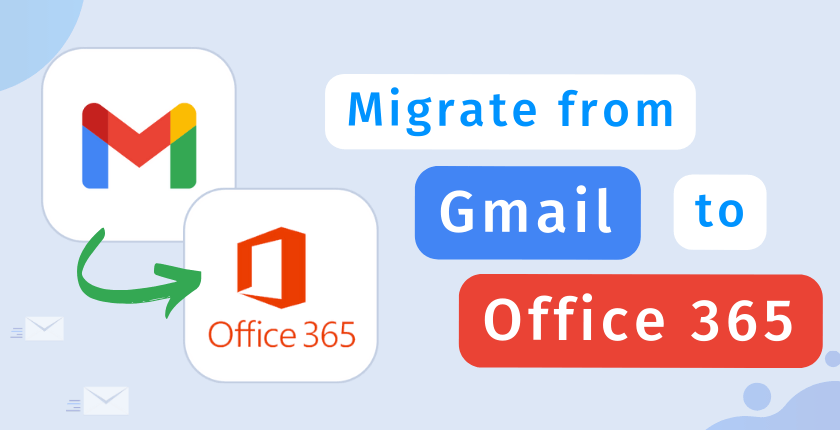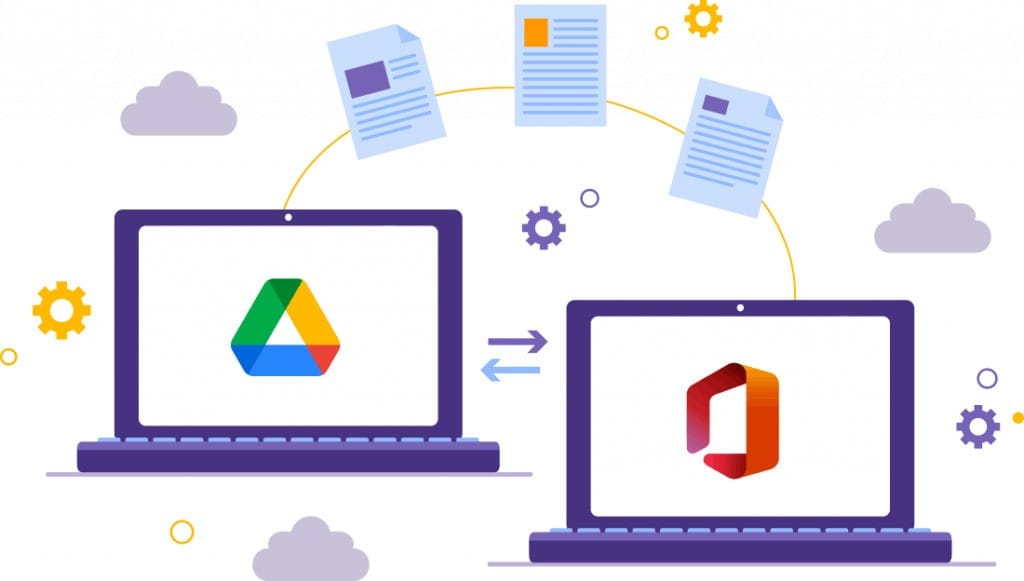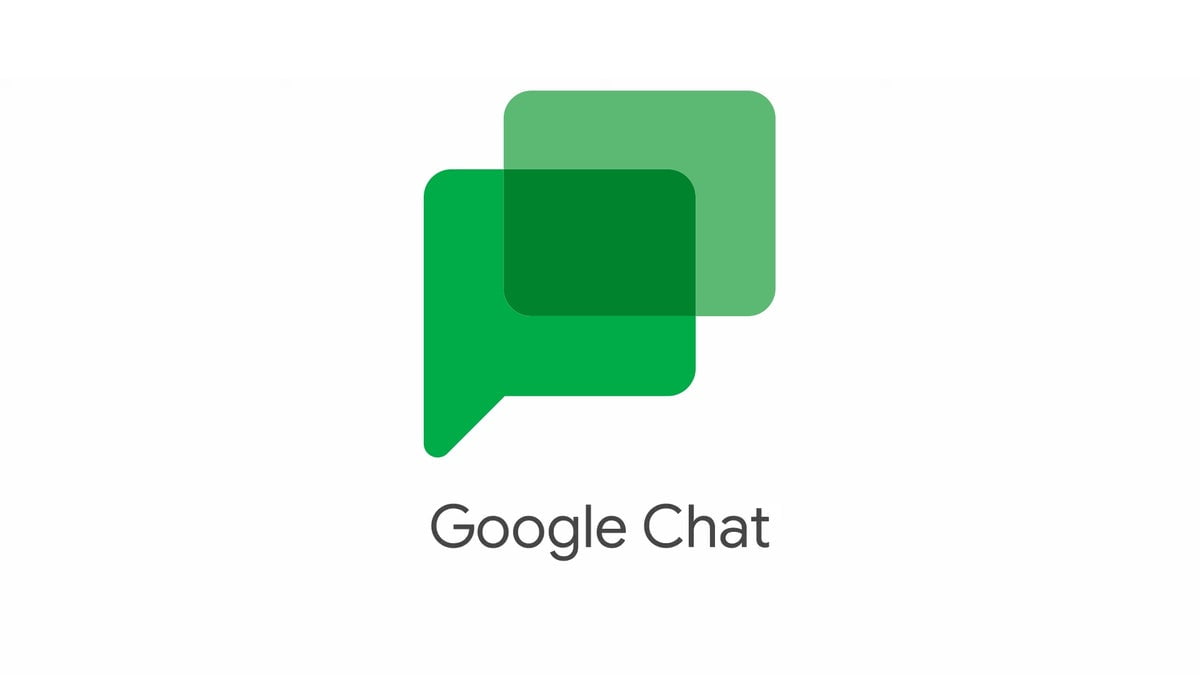Google Workspace vs Office 365: Which is best for your business in 2024?

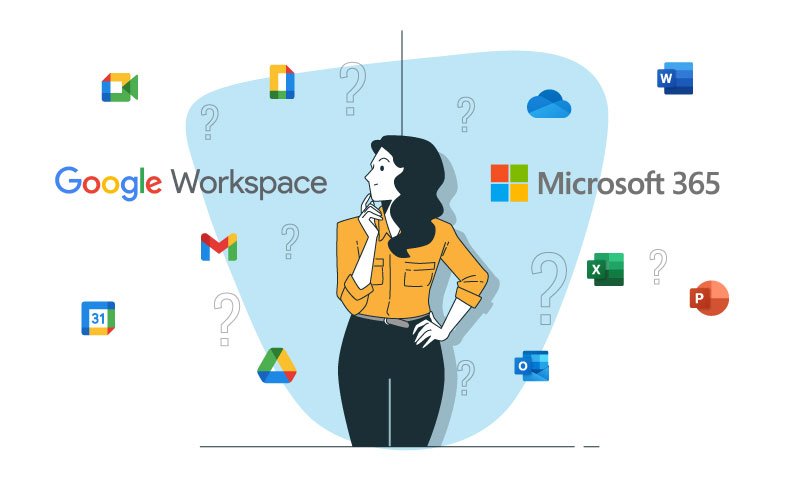
When it comes to productivity suites for businesses, Google Workspace and Microsoft Office 365 (now known as Microsoft 365) are two industry titans. Both offer a wide range of tools for communication, collaboration, and file storage, but choosing the right platform for your business isn’t always straightforward. Depending on your team’s needs, one might be a better fit than the other. Whether you’re a small business owner, an IT manager, or part of a large enterprise, understanding the key differences between these platforms will help you make an informed decision. Let’s break down Google Workspace vs Office 365 and figure out which is the best solution for 2024.
Table of contents
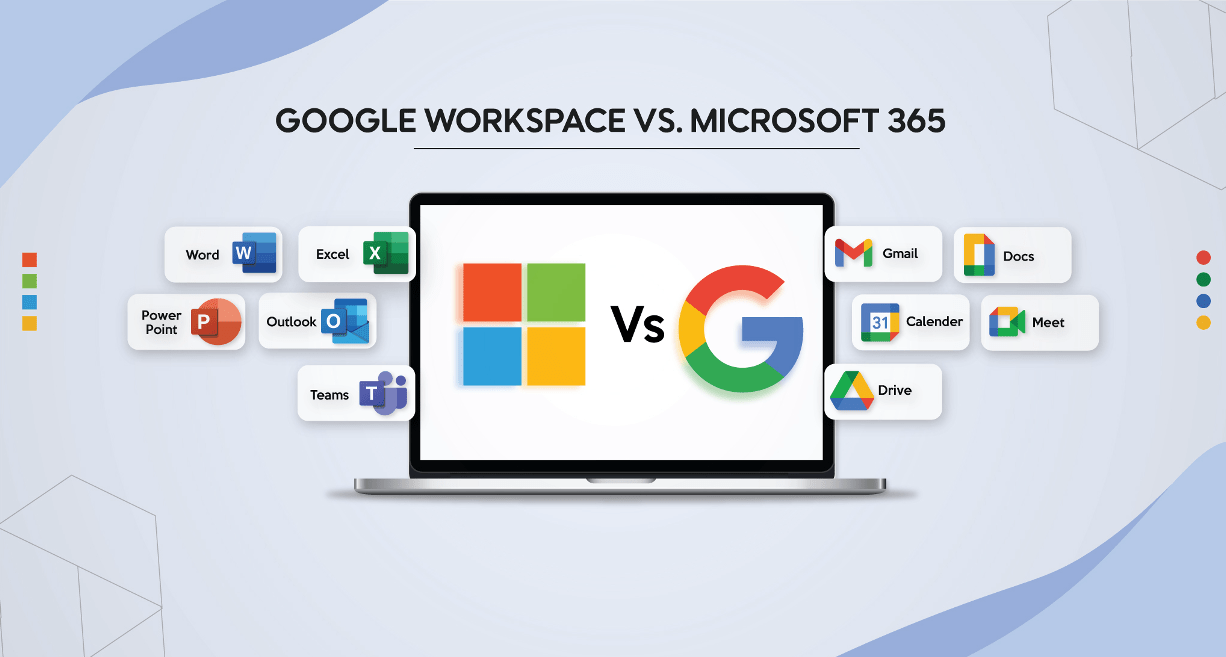
Pricing: Google Workspace vs Office 365 comparing subscription plans
The first thing most businesses look at is pricing. Both Google Workspace and Office 365 offer tiered pricing plans, starting with basic options and scaling up to enterprise-level solutions.
- Google Workspace offers Business Starter at around $6 per user per month, Business Standard at $12 per user, and Business Plus at $18. Each of these plans includes varying storage options and feature sets, with the more expensive plans offering more collaboration and security tools.
- Office 365 (Microsoft 365) starts with Business Basic at $6 per user per month, Business Standard at $12.50, and Business Premium at $22. These also vary in storage and features, but Office 365 tends to offer slightly more in its higher-end tiers, especially when it comes to security and administrative tools.
If your team doesn’t require the highest-level security or compliance features, you might find Google Workspace more affordable. However, Office 365 might be worth the extra cost for larger organizations that need those advanced features.
Collaboration: Real-time editing and sharing
Both platforms are built for collaboration, but they go about it in different ways. Google Workspace is known for its simplicity, while Office 365 is packed with features.
- Google Docs vs Microsoft Word: Google Docs is designed for real-time collaboration. You and your team can edit the same document simultaneously, see each other’s changes in real-time, and leave comments or suggestions. Microsoft Word also offers real-time collaboration, but its document formatting tools are more advanced, making it better for creating highly formatted documents like reports and proposals.
- Google Sheets vs Excel: When it comes to spreadsheets, Google Sheets is fantastic for basic calculations and collaboration, but Excel is the heavyweight champion for more complex data analysis and formulas. If your business relies on heavy data manipulation, Office 365 may be the better choice.
Both platforms handle real-time collaboration well, but Google Workspace is often preferred for quick, straightforward collaboration, while Office 365 excels at more complex tasks and deeper functionality.
Cloud Storage: Google Drive vs OneDrive
Cloud storage is an essential part of both suites, allowing teams to store, share, and back up files.
- Google Drive gives you 30 GB with the Business Starter plan and unlimited storage with the higher tiers (if you have more than five users). It’s built for seamless integration with Google’s suite of apps and offers a clean, easy-to-use interface.
- OneDrive, on the other hand, offers 1 TB per user with Business Basic and Standard plans, and 5 TB with Business Premium. If your business requires a lot of storage space for files, OneDrive’s offerings may appeal more.
Both Google Drive and OneDrive allow you to sync files across devices, work offline, and share files securely. Google’s simplicity might be better suited for teams that prioritize ease of use, while OneDrive’s deeper integration with Office apps can be more powerful for businesses that live and breathe Microsoft.
Communication tools: Gmail and Meet vs Outlook and Teams
Both suites excel in communication tools, but again, they take slightly different approaches.
- Gmail vs Outlook: Gmail is straightforward, with a clean interface that integrates beautifully with the rest of Google Workspace. If you’re a fan of keeping things simple and uncluttered, Gmail is the winner. Outlook, however, is more feature-rich. It comes with extensive email filtering, advanced search tools, and integrates deeply with Microsoft Teams and OneDrive. If your business uses Outlook’s calendar and task management features heavily, you’ll find it tough to beat.
- Google Meet vs Microsoft Teams: For video conferencing, Google Meet offers easy-to-use, high-quality video calls with up to 250 participants. It’s perfect for teams looking for simplicity. Microsoft Teams is more robust, offering not just video calls but also full team collaboration, including chat channels, file sharing, and app integration. Teams is like a virtual office space, while Meet is a more traditional video-conferencing tool.
For businesses that want an all-in-one communication tool, Microsoft Teams might have the edge. But if your team just needs reliable video calls and email, Google Meet and Gmail work perfectly.
Security and compliance: Keeping your business safe
In terms of security, both platforms offer enterprise-level protections, but Microsoft tends to push the boundaries here.
- Google Workspace provides two-factor authentication, data encryption, and protection against phishing and spam. It complies with GDPR and HIPAA requirements, making it suitable for industries with strict data protection needs.
- Office 365 offers the same features, plus more robust compliance tools for businesses in highly regulated industries. Microsoft 365 also has Advanced Threat Protection, Information Rights Management, and Data Loss Prevention, making it a better fit for organizations that need to monitor and manage sensitive data.
If your business handles sensitive information or operates in a regulated industry, Office 365 may provide the advanced security features you need.
Usability: Which is easier to use?
Usability can make or break a productivity suite for your team. Google Workspace is often praised for its user-friendly interface and simplicity. It’s easy to get started with, even for less tech-savvy users. Google Docs, Sheets, and Gmail are intuitive, and most users can get up and running with little training.
Office 365, while more powerful, has a steeper learning curve. Tools like Excel and Outlook are feature-packed but can be overwhelming for new users. However, once your team gets used to the interface, Office 365 offers incredible functionality.
If you’re looking for something your team can pick up quickly, Google Workspace wins on usability. But if your business requires more advanced features, Office 365 may be worth the initial learning investment.
Integration: How each platform fits with other tools
Both platforms offer excellent integration with third-party tools and services, but they excel in different areas.
- Google Workspace integrates beautifully with Google’s ecosystem (like YouTube, Google Ads, and Google Analytics), and it’s compatible with many third-party productivity apps such as Slack and Asana.
- Office 365 integrates seamlessly with the Microsoft ecosystem (such as Windows, Azure, and Dynamics) and also supports a wide range of third-party apps. It’s particularly powerful for businesses already using Windows devices and software.
If you’re already using other Google or Microsoft products, it makes sense to stick with their corresponding productivity suite.
Conclusion
When deciding Google Workspace vs Office 365, it ultimately comes down to your business’s specific needs. Google Workspace shines in simplicity and ease of use, with powerful real-time collaboration and a focus on cloud-based tools. On the other hand, Office 365 offers more advanced features, especially in security, communication, and data analysis, making it ideal for larger businesses or those that require a higher level of functionality.
Evaluate your business’s priorities—whether it’s cost, security, collaboration, or ease of use—and choose the platform that best fits your goals. Whichever you choose, Google Workspace vs Office 365 will equip your team with the tools they need to stay productive and connected in 2024.
Topics

Roshan R Poojary
Cloud Licensing Specialist • 6+ years
Roshan is a Cloud Licensing Specialist with deep expertise in Microsoft 365 and Google Workspace subscription management. He helps businesses optimize their cloud licensing costs and assists help desk teams in resolving complex subscription issues.
